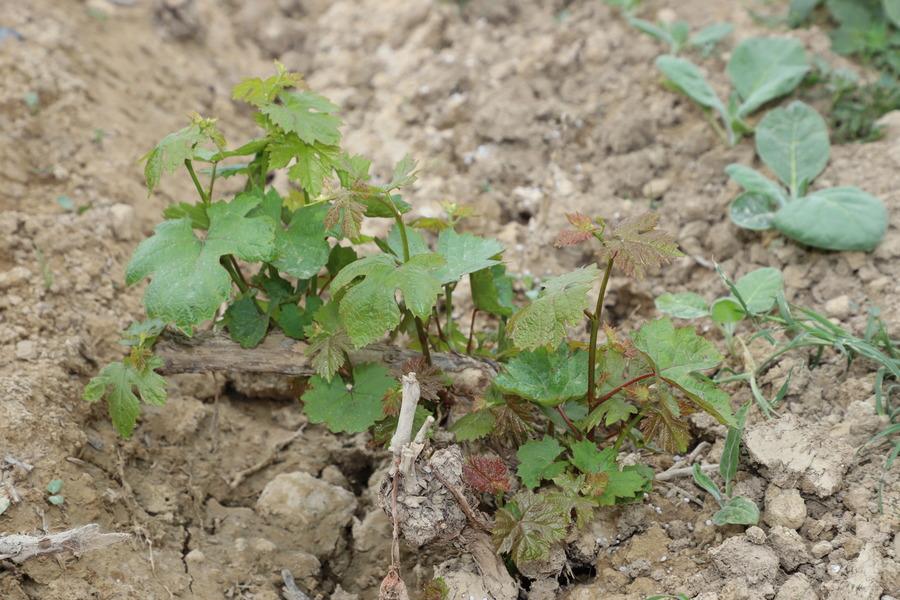Young farmers revive vineyards in Batken region with FAO support
June 25, 2025, 08:36
Batken region – In Kyrgyzstan’s Batken region, abandoned land is being brought back to life with the support of the Food and Agriculture Organization of the United Nations (FAO). One striking example is the initiative of a group of young farmers from the village of Chon-Talaa. These enthusiasts have started growing grapes and apricots on a plot that had unused for years.
A new life for abandoned land
The history of this field on the outskirts of Chon-Talaa dates back to the Soviet era when it was part of vast vineyards supplying a large winery and brandy distillery. However, after the collapse of the USSR, the infrastructure deteriorated, irrigation systems collapsed, and fertile land turned into wasteland. The lack of water rendered the area unsuitable for farming, until a group of enthusiasts led by 35-year-old farmer Mederbek Mirzayev decided to revive the tradition of viticulture.
As part of an FAO project helping rural women and farmers adapt to climate change, three families received grapevine saplings (varieties such as Pobeda, Oktyabrsky, and Damskie Palchiki), apricot seedlings, and fencing materials. This allowed them to protect the crops from grazing livestock and begin cultivating land that had been idle for decades.
This approach not only improves food security and household incomes but also promotes sustainable natural resource management, mitigates climate risks, and supports the restoration of degraded land.
“Nothing used to grow here because there was no water,” says Mederbek Mirzayev. “But we drilled a well, set up irrigation, and now the land is fruitful again.”
Plans and prospects
The grapevines were planted across two hectares, and the farmers hope to harvest their first crop soon. They expect a yield of 10 to 15 tonnes of grapes per hectare.
The grape varieties they chose, on the advice of FAO agronomists, are table grapes, primarily for fresh consumption. Damskie Palchiki are also used for making raisins, juices, and jam. The farmers plan to supply them to a processing plant, which will not only generate income for the participating families but also create new jobs in the region.
The success of this initiative has inspired other locals. Many are now considering using abandoned land to grow fruits and berries, especially given the rising demand for organic produce.
“At first, our neighbors doubted we’d succeed,” admits Mederbek Mirzayev. “But once the saplings sprouted, even the biggest skeptics took an interest in our work. Now, other farmers often come to us for advice.”
The project “Active Civil Society Women’s Organizations in Kyrgyzstan Reduce Climate-Related Risks at Regional and National Levels, Promoting Sustainable Peace” is implemented by FAO in partnership with UN Women and the Roza Otunbayeva Initiative Foundation, with financial support from the UN Secretary-General’s Peacebuilding Fund. Its goal is not only to increase rural incomes but also to strengthen regional stability through agricultural development and climate adaptation.
The story of Mederbek Mirzayev and his team proves that even the most challenging land can flourish with support, perseverance, and faith in the future. The revival of vineyards in Chon-Talaa is more than just an agricultural project, it’s a step toward sustainable development for the entire region.